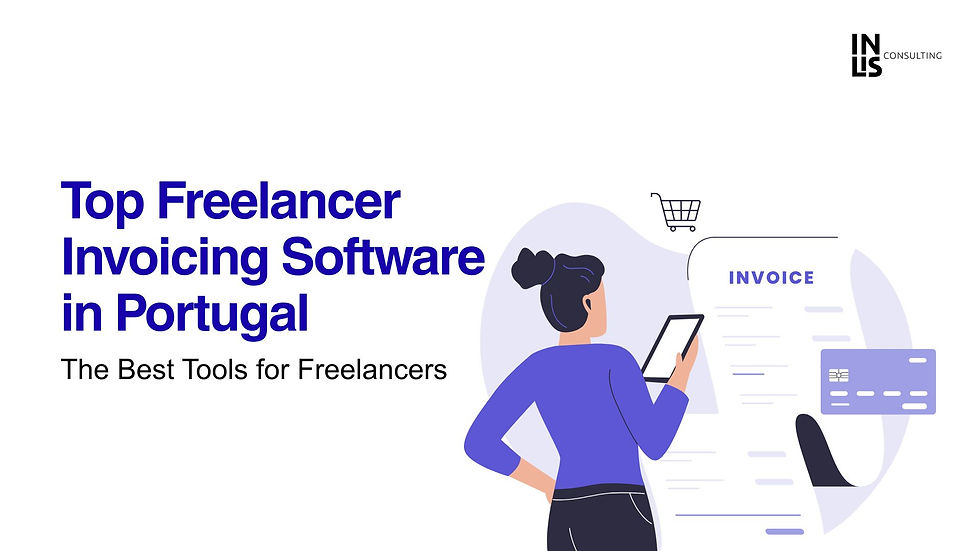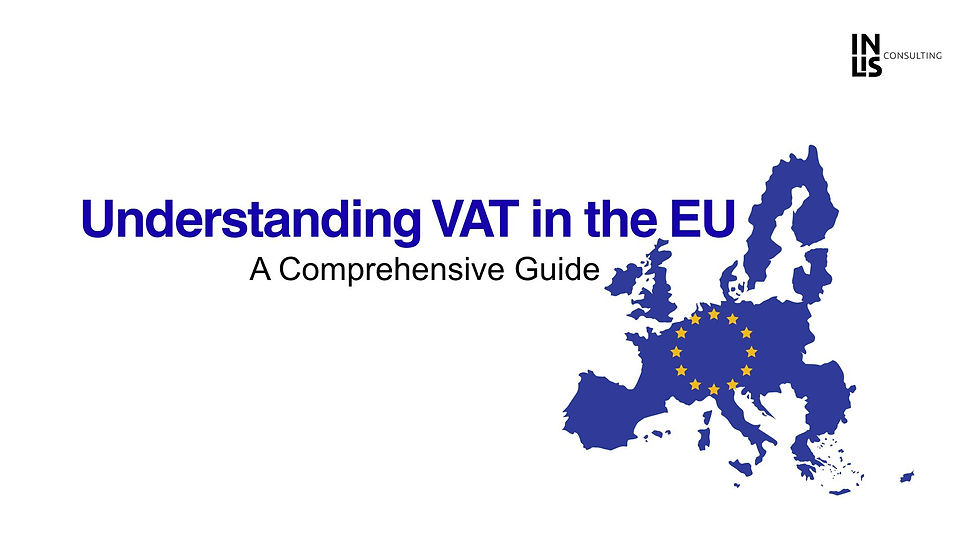How to Avoid Double Taxation in Portugal: A Guide for Expats with Foreign Income
- INLIS Consulting
- Aug 21, 2025
- 3 min read
Learn how to avoid double taxation in Portugal. A full guide for expats, freelancers, and residents with foreign income, including tax treaties, NHR, and IRS filing.

If you are an expat living in Portugal and earning money from abroad, you may be worried about double taxation—paying tax both in Portugal and in the country where the income comes from.
The good news is that Portugal has signed double tax treaties (DTTs) with more than 80 countries to prevent this. Combined with the Non-Habitual Resident (NHR) regime, expats can often reduce or avoid paying tax twice on the same income.
This article explains how double taxation works in Portugal, what rules apply, and the steps you can take to protect your income legally and efficiently.
What Is Double Taxation?
Double taxation happens when two countries both claim the right to tax the same income. For example:
You live in Portugal (tax resident).
You earn income from the United States (dividends, remote work, or pensions).
Without a tax treaty, you might pay U.S. tax and Portuguese IRS tax on the same income.
Portugal solves this problem through tax treaties and special regimes.
Portugal’s Double Taxation Agreements (DTAs)
Portugal has over 80 double taxation agreements with countries, including:
United States
United Kingdom
Canada
Germany
France
Spain
Brazil
Pakistan
India
These treaties define which country has the right to tax each type of income (salary, pension, dividends, royalties, etc.).
Example: If you are a Portuguese resident receiving a pension from Germany, the tax treaty may state that the pension is only taxed in Germany, meaning Portugal won’t tax it again.
You can check Portugal’s full list of treaties on the Autoridade Tributária (AT) – Finanças website.
The Role of Residency in Portugal
To know where you pay tax, you must determine if you are a Portuguese tax resident:
You are considered a resident if you stay in Portugal for more than 183 days in a year.
Or, if you have a home in Portugal that can be considered your permanent residence.
If you are a non-resident, you only pay tax in Portugal on income sourced in Portugal (e.g., renting property here).👉 If you are a resident, you must declare worldwide income in Portugal—but DTAs prevent double taxation.
How to Avoid Double Taxation in Portugal
1. Use Portugal’s Double Tax Treaties
Check if your country has a treaty with Portugal.
Apply the treaty rules to know where your income should be taxed.
In many cases, you can request a foreign tax credit in Portugal for tax already paid abroad.
2. Apply for the Non-Habitual Resident (NHR) Regime
The NHR regime (available for 10 years) offers big tax advantages for expats:
Foreign pensions may be taxed at a 10% flat rate.
Many types of foreign income (dividends, royalties, freelance income) may be exempt in Portugal if taxed in the source country.
Portuguese-sourced high-value activities can benefit from a 20% flat IRS rate.
3. Claim a Foreign Tax Credit with the IRS
When filing your IRS tax return in Portugal, you can often claim a credit for taxes already paid abroad. This reduces your Portuguese tax bill.
4. Avoid Common Mistakes
Not declaring foreign income (required even if exempt).
Missing IRS deadlines in Portugal (usually April–June).
Not getting proof of tax paid abroad (needed for credits).
Tax Obligations for Expats in Portugal
Whether you are a freelancer or own a company, your obligations differ:
Freelancers in Portugal with Foreign Clients
Must issue recibos verdes for Portuguese clients.
For foreign clients, invoices may be exempt from VAT under the reverse charge system.
Worldwide income must still be declared in Portugal (IRS), but may be exempt or credited under treaties.
Companies in Portugal with Foreign Revenue
Portuguese companies are taxed on worldwide profits (IRC – 21%).
Foreign tax paid can often be deducted under DTAs.
Additional compliance required (quarterly VAT, annual accounting).
Practical Example
Anna, a UK citizen, moves to Lisbon and becomes a tax resident in Portugal.
She receives dividends from a UK company.
Under the Portugal-UK tax treaty, these dividends are taxed in the UK, but may also be taxed in Portugal with a credit applied.
If Anna registers under NHR, the dividends may be exempt in Portugal if already taxed in the UK.
Conclusion
Avoiding double taxation in Portugal is all about understanding your tax residency, applying the correct double tax treaty, and taking advantage of regimes like NHR.
At INLIS Consulting Portugal, we help expats, freelancers, and businesses:
Register tax residency.
Apply for NHR status.
File IRS while avoiding double taxation.
Stay compliant with Finanças and international tax rules.
👉 If you have foreign income and live in Portugal, book a consultation with us today to make sure you don’t pay tax twice.




Comments